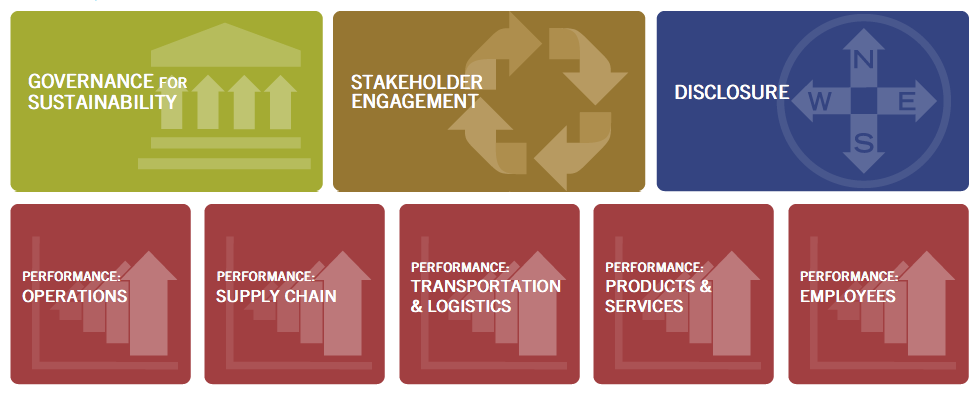2020 corpor路线图ate sustainability

Plotting a company’s future is never a static process. Circumstances shift. Technologies change. Trends accelerate.
This is surely the case as global businesses grapple with sustainability pressures such as climate change, water risks and human rights challenges.
Just as the urgency and complexity of these threats are increasing, operating environments for businesses are also changing dramatically.
From thehistoric climate agreementforged by 195 countries in Paris to the international community’s endorsement of the Guiding Principles on Business and Human Rights, governments worldwide are unified on the urgency for realizing a low-carbon future and providing decent work and economic growth for all.
Today’s world is markedly different from 2010, when we launched ourCeres Roadmap for Sustainability, with 20 specific expectations for sustainable corporations in the 21st century.
That’s why we — at our annual conference in Boston earlier this month — announced updated Ceres Roadmap expectations calling for accelerated action on key issues, including climate and clean energy, natural resource protections and fair, safe and equitable workplaces.
For example, we are calling for companies to secure not just 30 percent of their energy from renewable sources by 2020, but to shoot for as high as 100 percent by 2030, as 50-plus companies participating inthe RE100 initiativealready have done. We are also calling on companies to look beyond their direct operations, by including their vast supply chains, in protecting scarce water resources and human rights.

Time and time again at our two-day conference, I was reminded of why these expectations are both urgently necessary and achievable. I heard countless examples of powerful business and industry-wide responses that are putting the world on a new, more hopeful path.
Disruption in the electric power and transportation sectors, for example, is breathtaking.
On the clean transportation front, electric vehicle sales are surging as battery prices drop, vehicle-driving ranges increase and sticker prices fall. Sales jumped by 60 percent last year, with the biggest growth being in China. Bloomberg New Energy Finance recently predicted that by 2040, plug-in vehicles would make up about 35 percent of cars on the road.
"Look at your business, look at your household and think about why an electric vehicle makes sense," Britta Gross, director of advanced vehicle commercialization policy at General Motors, told more than 550 attendees on the first day of the conference. "There’s no good reason why there isn’t a plug-in vehicle in every driveway in this country right now."
Our updated Ceres Roadmap expectations call on companies to prioritize electric vehicles in their logistics and fleets, and to provide employees with the infrastructure needed to charge their vehicles at work.
I also heard about food companies upping their ambitions on climate and water issues, including General Mills, which is devoting far more attention these days to reducing water and carbon footprints in its vast supply chains compared to five years ago.
"Focusing just on our (direct) operations wasn’t enough," John Church, executive vice president of supply chain at General Mills, told a packed crowd.
We also heard about technological disruptions that are knocking down some of our biggest roadblocks to a sustainable future. The once-sacred idea of car ownership, for example, is losing its luster as ride-sharing options such as Uber take hold in places such as China.
"Our business has grown a ton," Uber China’s expansion manager Candice Lo said, outlining benefits such as reduced pollution and traffic congestion and less parking pressure in the world’s populous country.
A video of the recent Ceres conversation on the future of oil demand featuring Candice Lo of Uber.
But perhaps the most encouraging message that I heard was the critical need for companies to systematically integrate sustainability into their core business.
Harmit Singh, chief financial officer at Levi Strauss & Co., and Mehmood Kahn, chief scientific officer at PepsiCo, both underscored the importance of considering environmental and social issues for their businesses in the short and long-term. They also emphasized the critical role the C-suite, including corporate directors, must play to drive sustainability into strategies and day-to-day decision-making.
So how can your business hasten its journey toward a more sustainable future?
Well, there’sa mapfor that.


